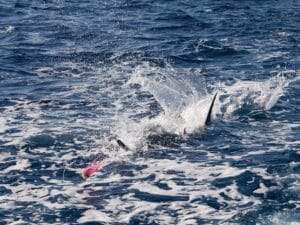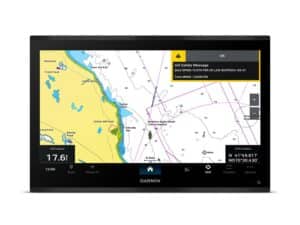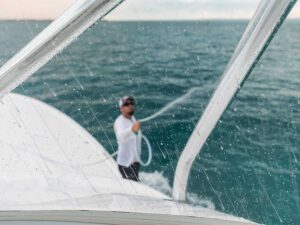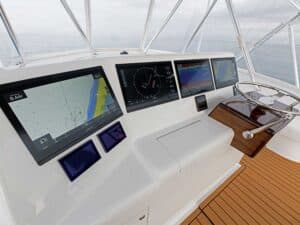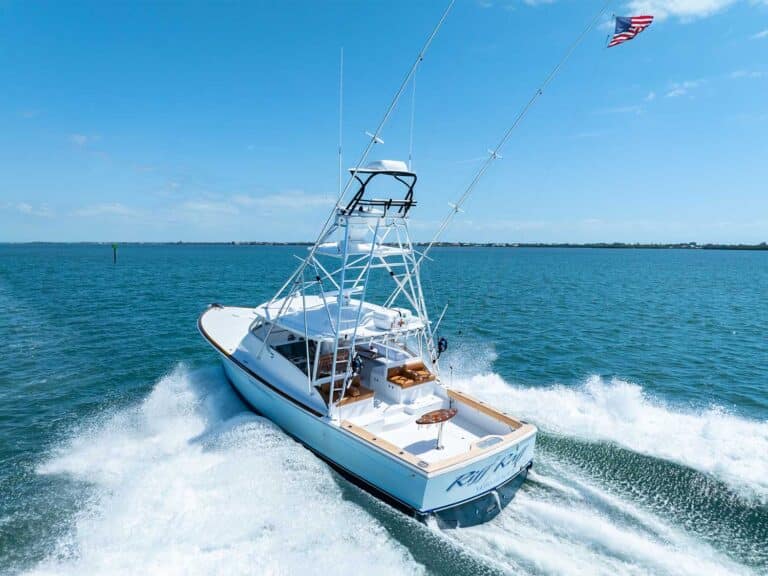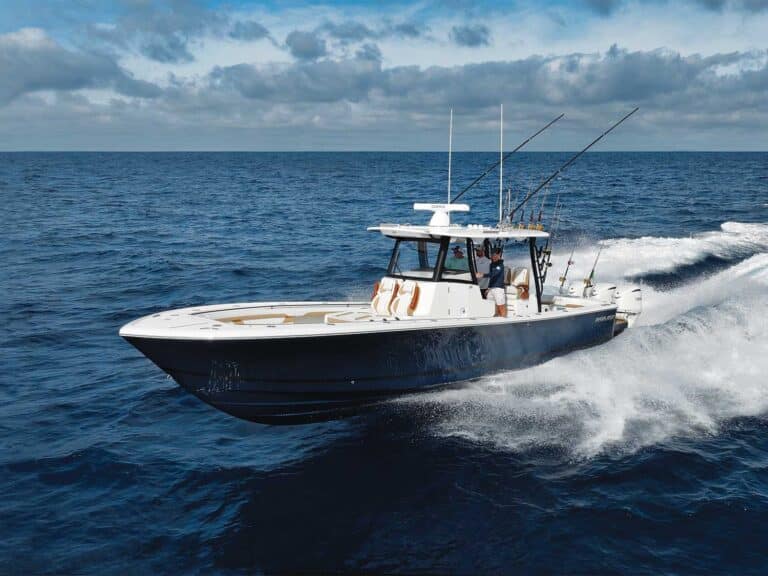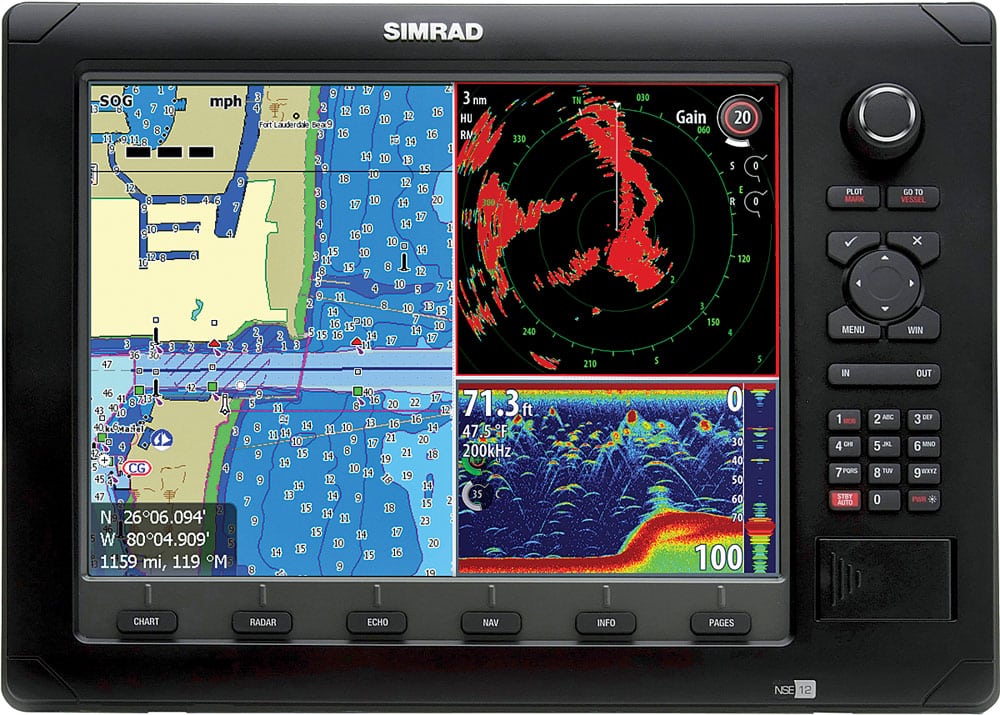
Simrad Insight Genesis Custom Charts
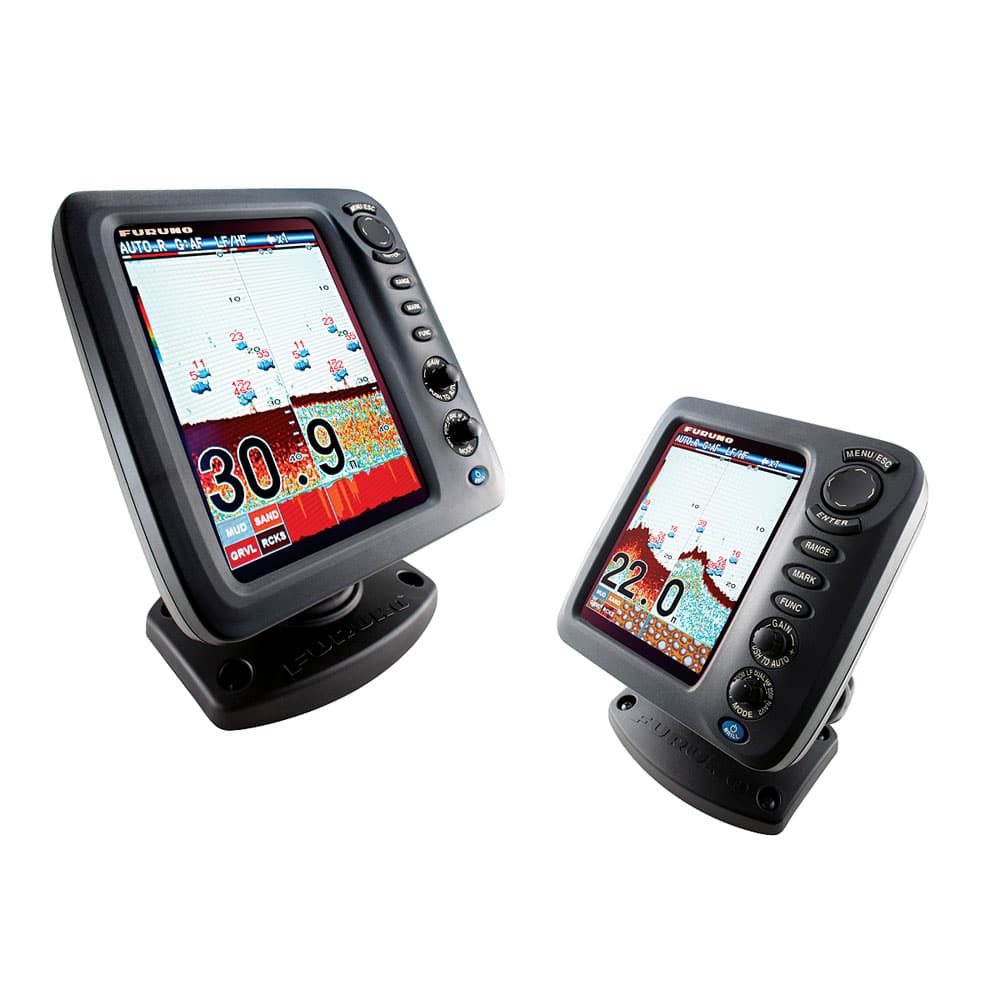
Furuno Sonars with Accu-Fish Technology
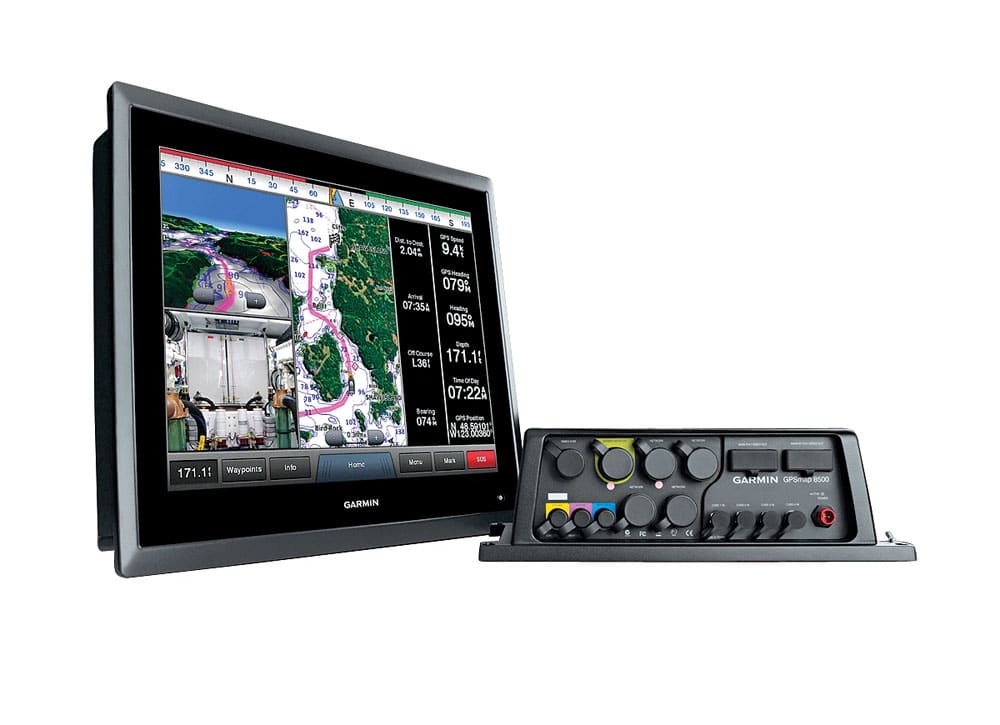
Garmin 8000/8500 Glass Helm
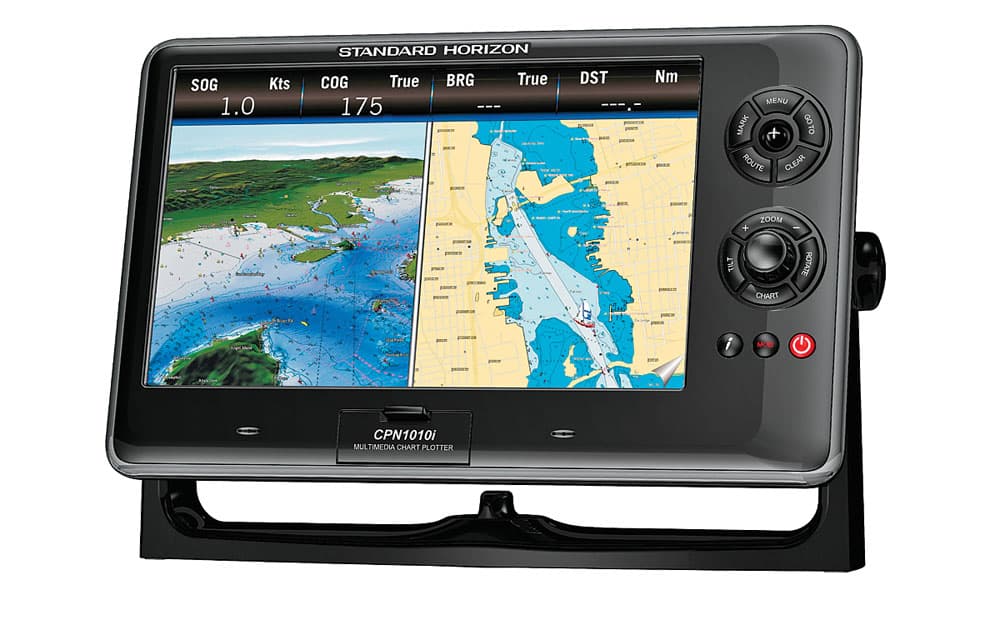
Standard Horizon CPN1010i and 700i
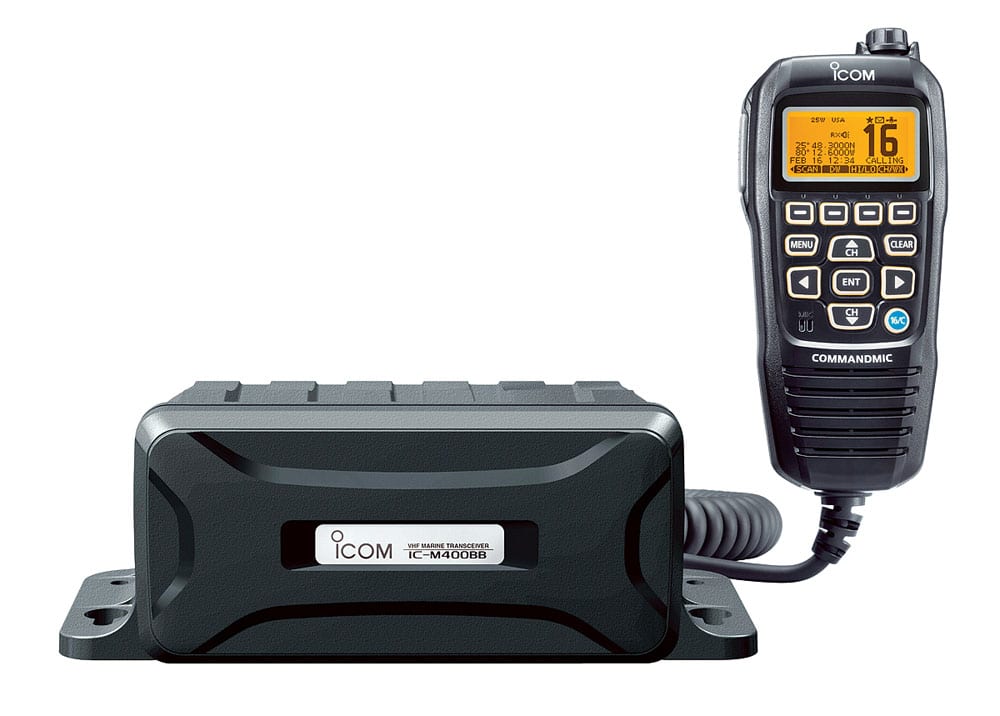
ICOM IC-M400BB
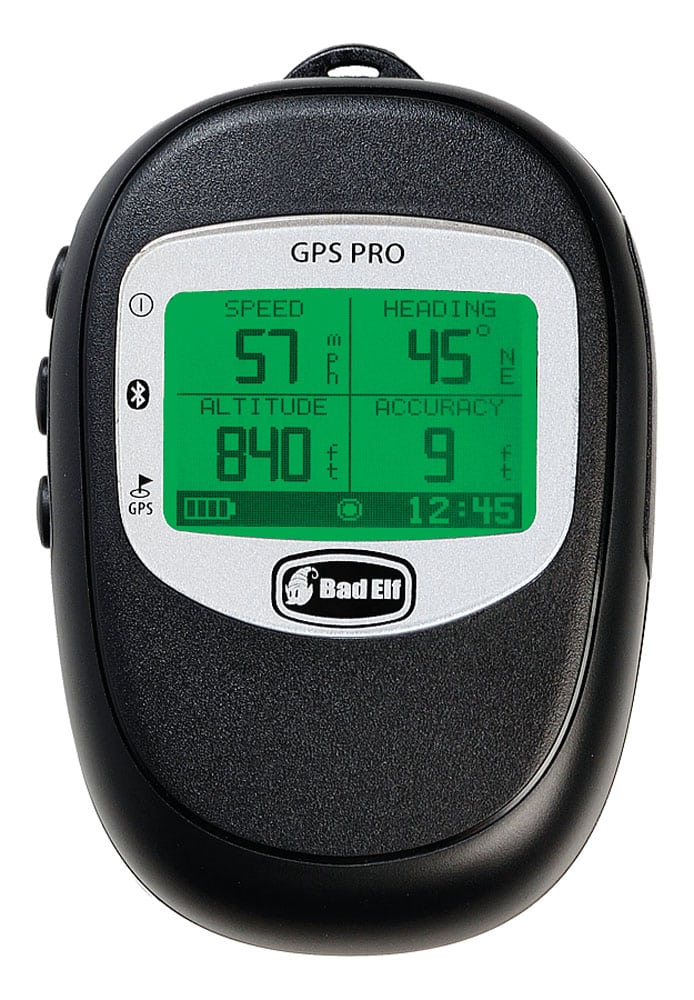
Bad Elf GPS Pro
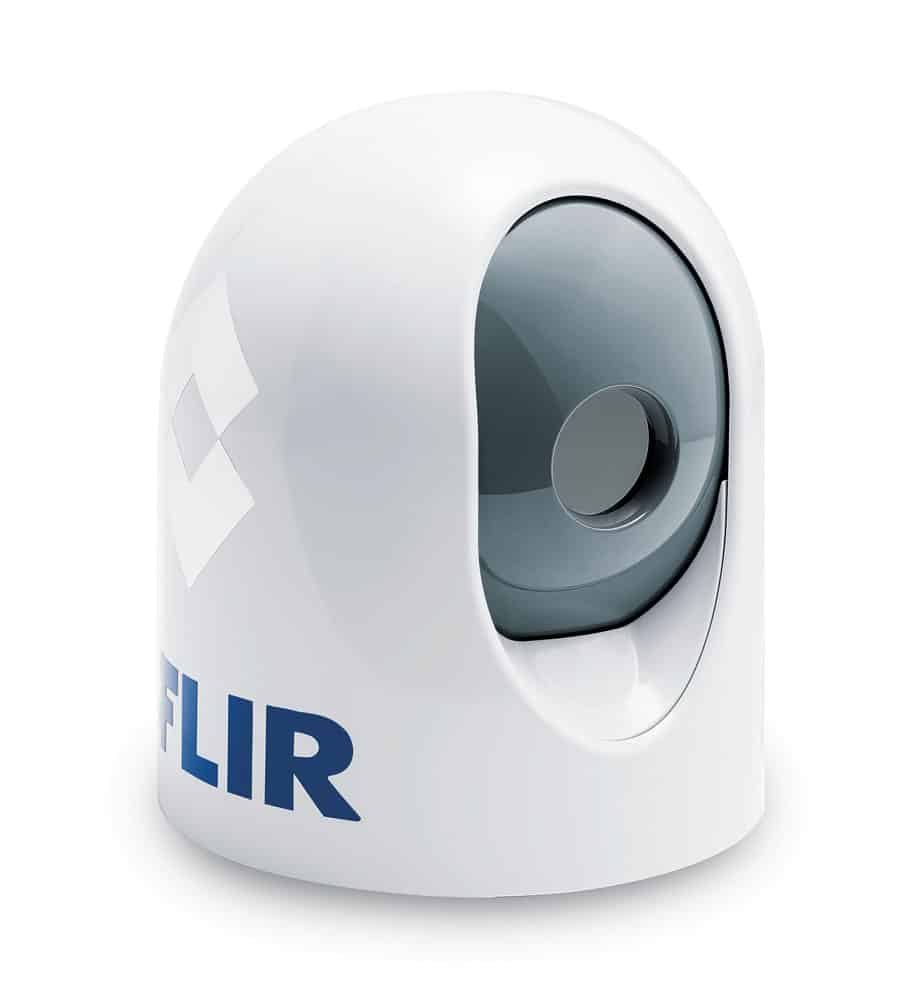
FLIR MD Series Thermal Night Vision
If you want to put the keenest edge on your marlin weapons, here are the places you need to start. We see the latest marine electronics six to eight months before they grace the helms of the next model year, and the bulk of the “cool and new” gear debuts at the annual Miami International Boat Show, held in February. Sure, you early adopters can retrofit your boats with the new jewelry, but if you don’t go to the MIBS (as insiders call the show), your new rig might leave the factory with last year’s stuff.
Furuno Sonars with Accu-Fish Technology
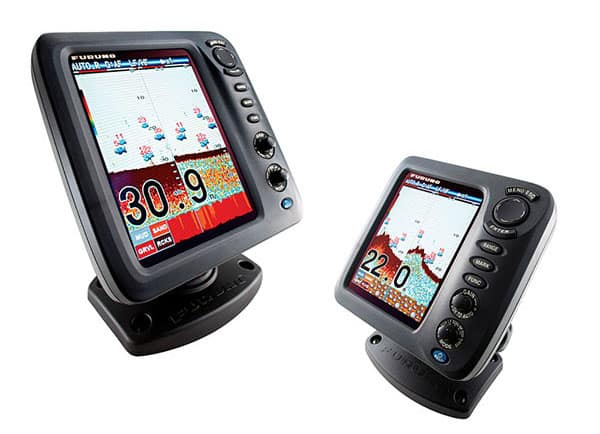
Furuno introduced three new sonars with Accu-Fish and bottom-discriminating technology. The first can distinguish individual fish, predict the species of the target and indicate the target’s approximate size with surprising accuracy. The bottom-discrimination feature analyzes echo return and categorizes it to predict the most likely bottom structure. A bar at the bottom of the sonar display “paints” an image of the most likely bottom composition, be it rock, gravel, mud or sand. Alternatively, a graph bar indicates the bottom composition, leaving the angler to interpret the signal.
If you are a NavNet 3D or a TZ Touch System user, or you want to be, the BBDS1 ($1,500) is network capable and has a 2,000-foot depth capability.
Two stand-alone units, the FCV-587 (8.4″ screen; $1,695) and FCV-627 (5.7″ screen; $995) come with the same cool features and a new screen that’s brighter than their predecessors’. Both offer a 3,000-foot depth range.
Think how handy it will be to know what’s on the bottom before you drop your anchor. Check them out at furunousa.com.
Simrad Insight Genesis Custom Charts
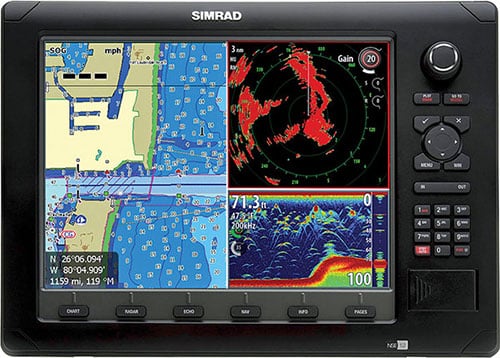
It’s easy to get wrapped up in hardware with chart-plotter and sonar technology advancing so quickly, but without good charting software, the units aren’t all that useful. Simrad’s native charts already represented a strong system, and they quickly adopted Navionics as well. At last, they’ve adopted Jeppesen’s C-Map, one of the longest-running, most dependable brands in GPS mapping.
More exciting is the Insight Genesis system, which leans on the Simrad NSS system’s ability to store scrolling sonar and structure scan info, coupled with GPS waypoints to take the next logical step: Input that bottom-contour information into custom charts. You can transfer the stored sonar/GPS data to a micro SD card, and then upload it to the Web-based Insight Genesis system. The system integrates it with maps that you can examine online or download back to your Simrad system. A single chart download is $19.95. Subscriptions range from $99.95 to $299.95 (simrad-yachting.com).
Garmin 8000/8500 Glass Helm
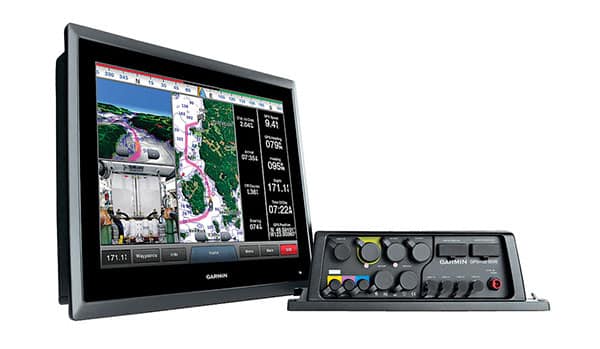
Garmin 8000 series units are 40 percent faster than the previous 7000 series, and brighter too. In our Miami Beach test, the units kept right up with us when we scrolled the map back and forth as quickly as we could, using the touch-to-pan function. These advantages are readily visible at the helm. Hidden, however, is the unit’s compact depth — just 2 inches — ensuring an easy upgrade to the newer system. Garmin also committed more of the surface area to the display. You can get them in 8-, 12- and 15-inch versions. A new interface system includes a touch menu bar across the bottom, which helps you master the system easily in spite of its upgraded features. The 8500 Glass Helm features all the utility of the 8000, but boasts the sleek all-glass look expected on long-range sport-fishers. A 10 Hz GPS/GLONESS external receiver updates position and heading 10 times per second for smooth, seamless operation (starting at $4,649.99; garmin.com).
Standard Horizon CPN1010i and 700i
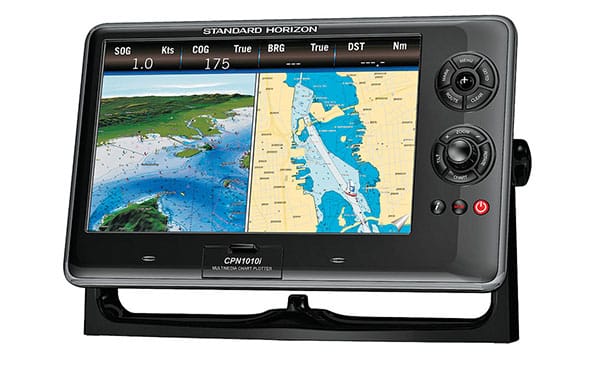
New enhancements to these chart plotters include Wi-Fi capability, which lets users browse the Web, collect and read e-mail, and stream video and music. Speakers are fixed in the front of the unit. It also plays MP3s from an SD card or flash drive. The Wi-Fi also allows integration with iPhone or iPad apps like Jeppesen’s Plan2Nav, which allows armchair planning of a trip’s waypoints and routes; you can then easily send the plans via Wi-Fi to the chart plotter. Ethernet connectivity allows multiple helm units to share waypoints, routes and other information. Each unit is pre-loaded with C-Map charts for the United States and all of its territories and Central America. The touch-screen system also offers convenient button and rotary controls for that professional feel (CPN700i: $1,499.99, CPN1010i: $2,299.99; standardhorizon.com).
ICOM IC-M400BB
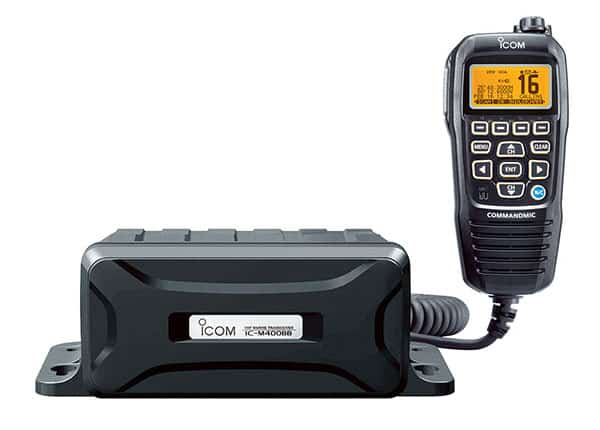
It may be a black box VHF, but you can connect to either a black or white handset mounted up to 20 feet away on the supplied cable. The handset is waterproof and is equipped with Icom’s unique AquaQuake draining function that uses a low-frequency buzz on the handset to drive water off the speaker. Active noise-canceling technology reduces background noise in transmission by up to 90 percent, giving clearer communication. An NMEA 2000 data cable allows for an easy communication link for class-D DSC emergency calling and selective calling. It transmits at 25 watts using 5.5 amps of power and only 3.5 amps during receiving ($549.99; icomamerica.com).
SI-TEX SVS-750CF
Why make multifunction displays vertical rather than horizontal? A sonar display benefits from the vertical orientation, which puts more pixels between the top and bottom and enhances the view of the water column. GPS capable, the SVS-750CF interfaces with C-Map cards. The 7½-inch diagonal screen is bracket mounted and sells for $1,189 (si-tex.com).
Bad Elf GPS Pro
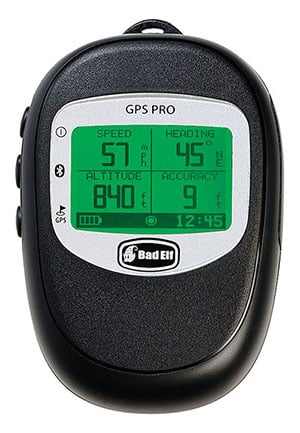
Capable smartphones have been cutting into laptops’ sales for the past five years. Now smartphones are even more capable with this cool GPS accessory and Bluetooth device from Bad Elf. Connect it to up to five smartphones or tablets to give real-time GPS data in partnership with GPS charting apps like Navionics or Jeppesen. Thanks to Bad Elf, smartphones may be about to challenge the nav-gear market ($179.99; bad-elf.com).
FLIR MD Series Thermal Night Vision
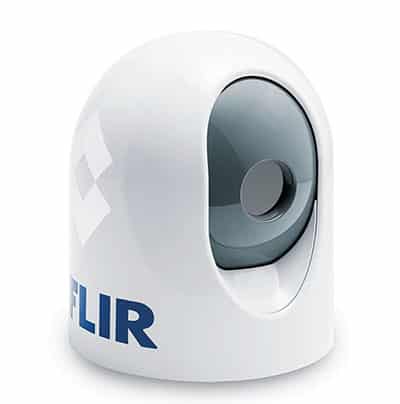
It had to begin coming down in price, and FLIR’s new MD series forward-looking infrared imaging system now starts at an affordable $3,499. It integrates into your existing electronics system via an Ethernet cable. The 3-pound remotely aimed device looks like a 7-inch R2D2 and comes in two models: MD-324 (320 x 240; 24-degree field of view; 2X optical zoom; $3,499) and MD-625 (640 x 480; 25-degree field of view; 2X optical and 4X e-zoom; flir.com).
